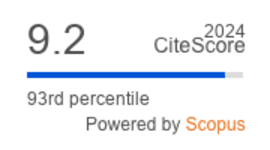Mechanistic Insights into the Inhibition of Colorectal Cancer by BuShenFang through Adenomatous Polyposis Coli Expression and Wnt/β-catenin Pathway Regulation
DOI:
https://doi.org/10.36877/pmmb.a0000460Abstract
Colorectal cancer (CRC) remains one of the leading causes of cancer-related mortality worldwide. Despite advances in chemotherapy and radiotherapy, significant side effects persist, prompting the exploration of alternative therapies such as traditional Chinese medicine (TCM). BuShenFang (BSF), a TCM formulation, is believed to exhibit anti-CRC effects, although its exact mechanism is unclear. This study aims to investigate the effects of BSF on CRC cells through the modulation of the Wnt/β-catenin pathway. The study utilized HCT116 and SW620 CRC cell lines, employing in vitro experiments including cell viability assays, colony formation, flow cytometry, and Western blot to examine the influence of BSF on cellular proliferation, apoptosis, migration, and the Wnt/β-catenin signaling pathway. Results demonstrated that BSF significantly inhibited the proliferation of CRC cells in a dose-dependent manner. The apoptotic rate was markedly increased in the 20% BSF group, while colony formation, migration, and invasion capabilities of CRC cells were notably suppressed. Furthermore, Western blot results revealed that BSF enhanced adenomatous polyposis coli (APC) expression and inhibited β-catenin, c-Myc, and Cyclin D1, key proteins in the Wnt/β-catenin pathway. In conclusion, BSF exerts anti-CRC effects by modulating the Wnt/β-catenin pathway, suggesting its potential as a complementary therapeutic agent in CRC treatment. Future studies should focus on in vivo models to validate these findings.
Downloads
Additional Files
Published
How to Cite
Issue
Section
License
Copyright (c) 2025 Khang Wen Goh, Jie Ji, Hiu Ching Phang, Xian Gu, Rajesh Sreedharan Nair, Xiaohui Wei, Mohammed Tahir Ansari, Kai Bin Liew

This work is licensed under a Creative Commons Attribution-NonCommercial 4.0 International License.
Author(s) shall retain the copyright of their work and grant the Journal/Publisher right for the first publication with the work simultaneously licensed under:
Creative Commons Attribution-NonCommercial 4.0 International (CC BY-NC 4.0). This license allows for the copying, distribution and transmission of the work, provided the correct attribution of the original creator is stated. Adaptation and remixing are also permitted.

This broad license intends to facilitate free access to, as well as the unrestricted reuse of, original works of all types for non-commercial purposes.
The author(s) permits HH Publisher to publish this article that has not been submitted elsewhere.



.png)

.jpg)
